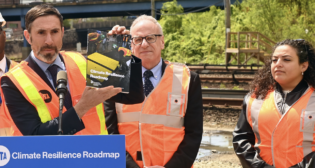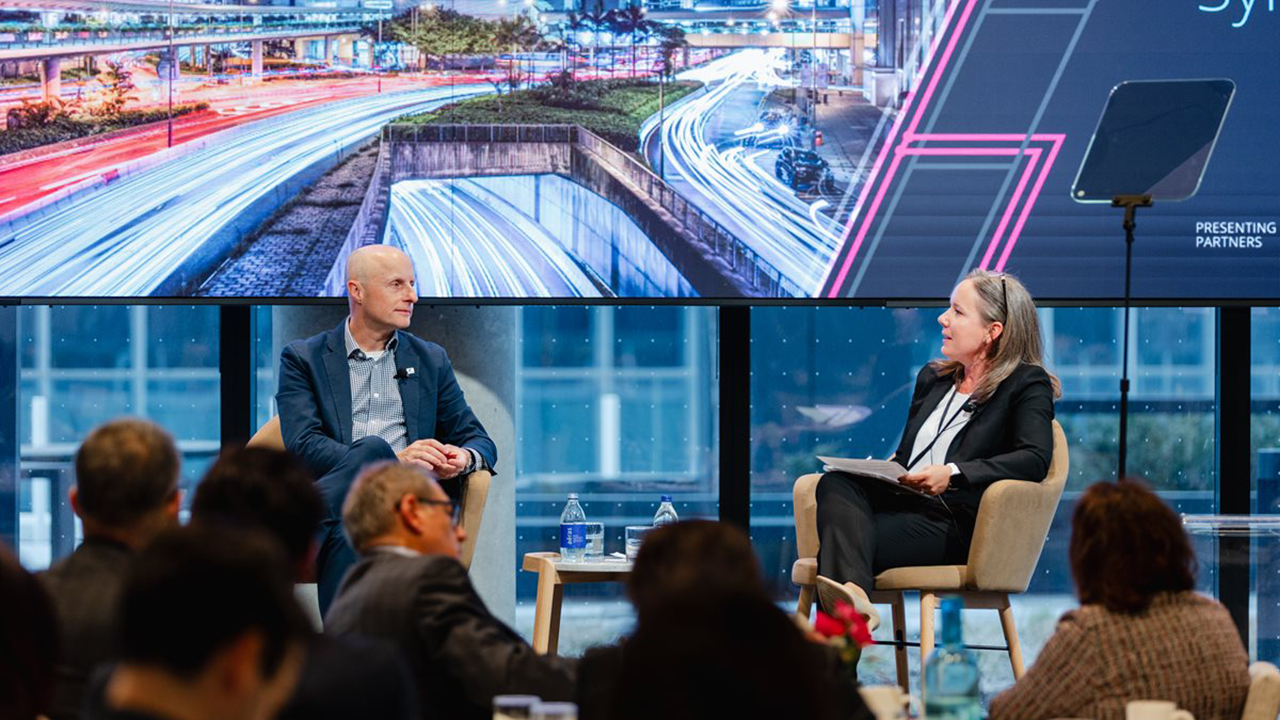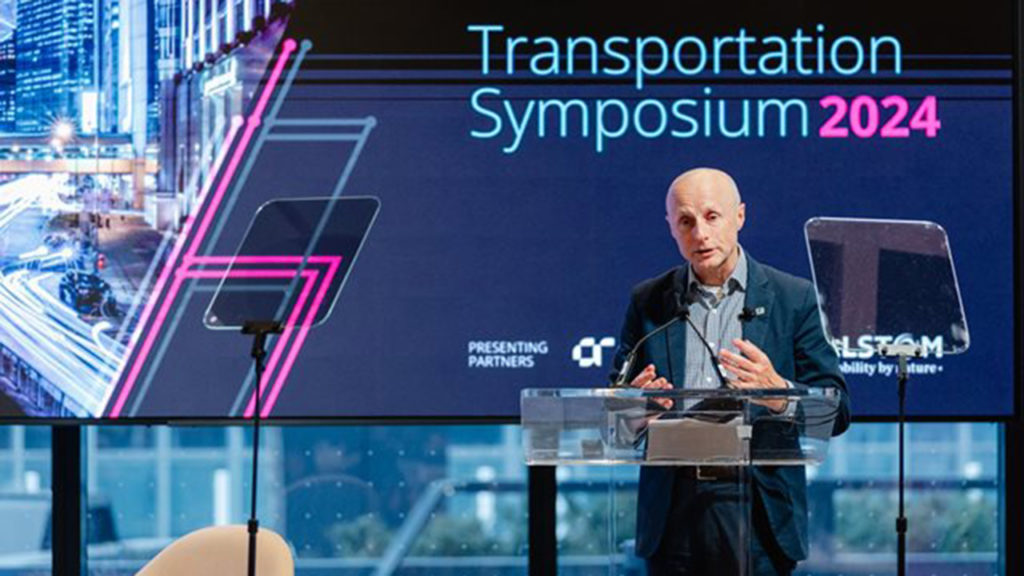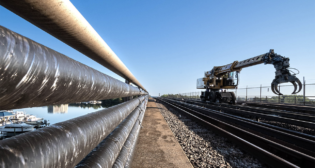
Watch: ‘Train Daddy’ Andy Byford Speaks Out in Toronto
Written by William C. Vantuono, Editor-in-Chief
Toronto Board of Trade photo
At the Toronto Region Board of Trade (TRBT) 9th Annual Transportation Symposium, “Train Daddy” (as he was nicknamed in New York City) Andy Byford, among the most recognizable figures in global passenger rail and now Senior Vice President for High-Speed Rail at Amtrak, spoke about project management and engaged in a Q&A with Infrastructure Ontario President, Project Delivery Angela Clayton about his experiences, and lessons learned.

The Transportation Symposium, titled “Are We There Yet?” convened “an impressive roster of experts who delved into strategies for enhancing mobility across the Toronto Region,” TRBT said. “The event culminated in a thought-provoking challenge issued by globally acclaimed authority in public transit Andy Byford, who has sat the helm of numerous global transit organizations—former CEO of the Toronto Transit Commission, President of the MTA New York City Transit, Commissioner of Transport for London, Chief Operating Officer with RailCorp in New South Wales, and now Amtrak SVP High-Speed Rail. In his engaging presentation, Byford encouraged transit planners and developers to embrace superior project management practices and show the world that Toronto can be a region where massive projects are delivered on time—and on budget.”
Watch Byford’s Full Speech:
Q&A Highlights
Angela Clayton: Andy, you’ve enjoyed an extraordinary career, overseeing transport authorities and projects around the world. You shared your top five lessons for effectively delivering massive transit projects. What do you hope everyone remembers?
Andy Byford: The main lesson I wanted to get across is that it’s what you do up front in a project that really matters. In other words, the foundations that you lay in terms of scope, schedule, the contracting regime and budget determine how your project will then unfold. So, it’s worth investing that time up front. If you don’t get those four critical areas right, then you are asking for trouble later down the line. There are so many examples of projects where scope wasn’t properly thought through. Maybe the schedule was unrealistic, the budget was unrealistic from the get-go, or contracts were set up to build in conflict that it’s no surprise then when those projects get into trouble. So, spend that time up front, do that homework, and resist being pressured into announcing a start date or announcing a budget. Announcing a schedule before you’ve done that homework, and you will bear the benefits. And of course, the opposite applies. If you don’t get that right there, don’t be surprised if your project gets into trouble.
Clayton: So, are you saying there shouldn’t be a timeline and budget when you first announce big infrastructure projects?
Byford: No, what I’m saying is don’t announce a project, a timeline or a budget until you’ve got it right, until you’ve got it locked down. So, what you sometimes find with projects is the scope hasn’t been properly thought through and yet it’s the scope that determines or it’s a massive influence in the budget and in the timeline. Obviously the broader the scope, the more that you’re trying to do, the longer it’s going to take to build and the more it’s going to cost. And similarly, if you haven’t really thought through the scope then and you’re making it up as you go along, you will get hit with variations from contractors who say, well hang on a minute, that’s not what we contracted for. So, what I’m saying is absolutely the scope and the budget and the schedule need to be locked down. But it all needs to be properly thought through before you get a spade in the ground and before you commit to the public. Because you know at the end of the day, we should be keeping our promises to the public and we shouldn’t be cost overrunning these projects as a matter of course.
Clayton: As you return to the City of Toronto and look around across the transit environment that we have right now, what would you recommend that we sort of focus on here as we move forward?
Byford: Well, I guess my answer would be finish off what’s already in flight, so get that Eglinton Crosstown open. The Ontario Line I think is going to be transformative for not just Toronto, but the wider GTA and then the other projects that are in chain, the HFR, the high frequency service to Ottawa and to Quebec City. I’d say get the existing projects done before you start looking at something else. But, equally, don’t let the project pipeline dry up. I just found out that the province of Ontario, just the province, is setting aside something like $60 billion worth of projects. That’s huge. That’s a massive commitment that shows real dedication on the part of the Ontario government to transform things. And just as well because you know what? Coming back to this city, I’m amazed at how much it’s changed in the short time since I’ve been away. This is a growing region and transportation simply must keep up.



